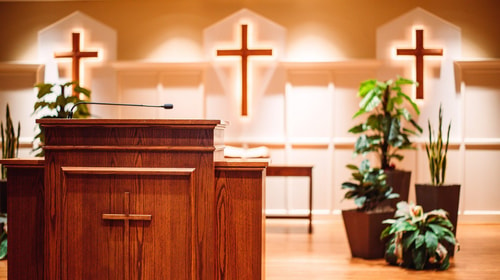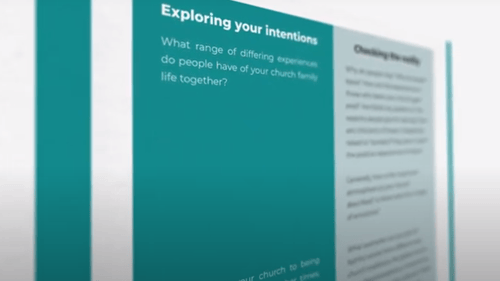“That would never happen here!” is the worst possible response to the church leadership scandal across the pond or down the road because it is soaked in pride and a failure to remember the Christian doctrine of sin.
But it is also a very natural one: we can’t imagine our church ever being the subject of an investigative podcast or an independent safeguarding review. The problem is that the same would have been true for many members of Mark Driscoll’s Mars Hill, Steve Timmis’ Crowded House or Jonathan Fletcher’s Emmanuel, Wimbledon. But all three were evangelical church leaders who used their power in abusive ways – despite being highly regarded in evangelical circles and loved by their own congregations.
So, what is a better response to church leadership scandals? To always expect the worst of your church’s leadership, or walk away from active church membership in disillusionment? No. Having reflected on the independent reviews of the UK leaders Steve Timmis and Jonathan Fletcher, a group commissioned by the Church of England Evangelical Council (CEEC) would like to suggest a different approach.
We’ve met throughout 2021 with a representative group of Anglican evangelical church leaders (women and men, younger and older, lay and ordained, conservative and charismatic, and survivors of abuse) and have developed three resources that we hope and pray will help evangelical churches respond better to what has gone wrong in our midst. These resources are available to all without presuming an Anglican context or church polity.
The first response is a short introductory film In Lament: Church Cultures, Power & Abuse which gives the context for our work, shares some of the pain people have been through, and introduces the other two resources.
These other resources are, first of all, a liturgy of lament. We believe that our instinctive response when we hear of the church leadership scandal across the pond, down the road, or in our midst should be to lament: to turn to God, complain to Him, ask for His forgiveness, and trust in Him to bring justice and healing.
Very kindly God has provided the resources we need to do this in His word (especially the Psalms) and in prayers that Christians have used down the ages. The liturgy uses these to take participants on a journey which includes listening to the stories of survivors of abuse in evangelical church contexts. Having used the liturgy ourselves we found the ‘given-ness’ of the words so helpful in contexts when we have been left speechless by what has been abusively said or done in the past.
Some churches and individuals will feel that they should start their engagement with the resources here, because people are already aware of abuse that has happened in their midst and are longing for words that will allow them to express all the emotions they already feel. Other churches and individuals may only find themselves ready to use the liturgy of lament when they have explored our other main resource together.
This other resource is a series of Church Cultures Review Questions that seek to enable churches to begin conversations about four key areas of their life together: leadership and accountability, diversity and difference, safeguarding and protection, power and decision-making. Each of these are the contexts in which things have gone badly wrong in churches where leaders have been allowed to abuse their power. Crucially our questions get people talking about both good intentions and the reality on the ground – what we hope is the case is sometimes not actually what is happening in everyday church life.
I took the questions grouped under the first theme (leadership and accountability) to a leadership team meeting at my church recently. I asked those there to simply highlight the questions that they felt would be most challenging for us to answer, as well as those they felt were (in both theory and practice) touching on parts of our church culture that feel healthy at the moment. It was just the beginning of the conversation but already we have things we need to work on (appraisals of those in leadership, being alert to the shadow side of different leadership styles) as well as encouragement on how our leaders speak of their weaknesses in helpful ways and don’t allow themselves to be put on pedestals.
As we work through the questions in more detail it is my expectation that there will keep being both encouragements and areas in which we are challenged to change. At some point in the process I hope people will, at my church and others, find themselves wanting to then turn to the liturgy of lament to express our sadness at what we’ve got wrong and ask for God’s gracious help to change.
We have to stop thinking, “That would never happen here!” when things go wrong elsewhere. The CEEC resources are freely available to all churches to help them better process what has happened elsewhere in recognition of the reality that abuse most easily happens in contexts where no one is alive to the possibility of it.
The resources are available at: ceec.info/in-lament.html




